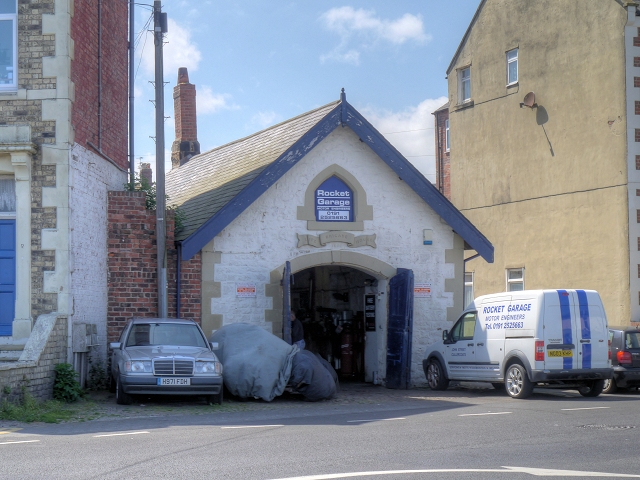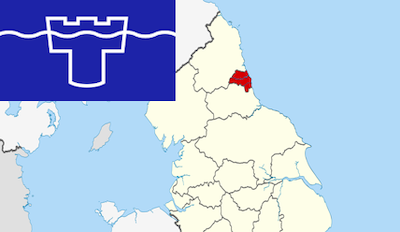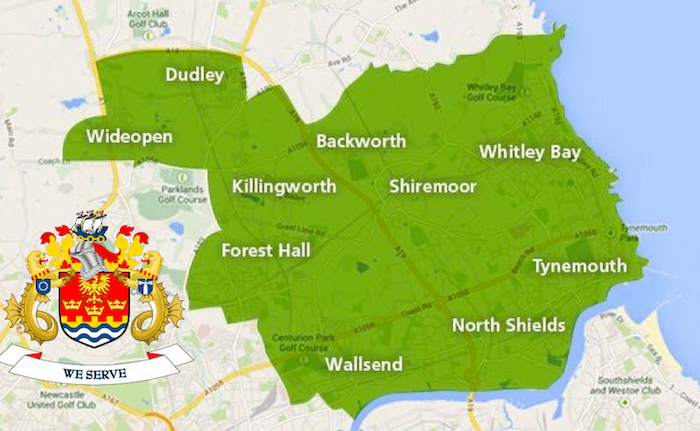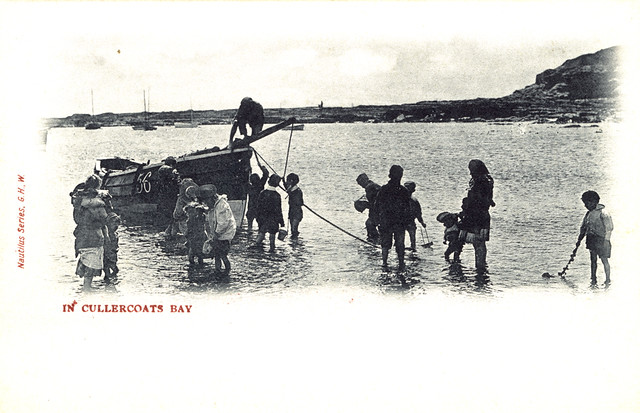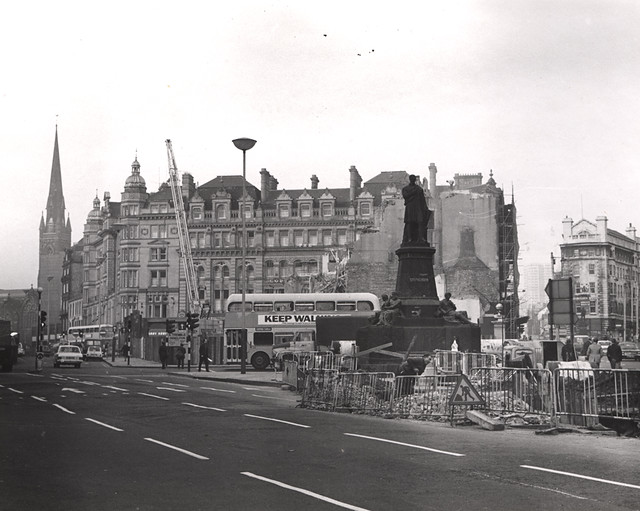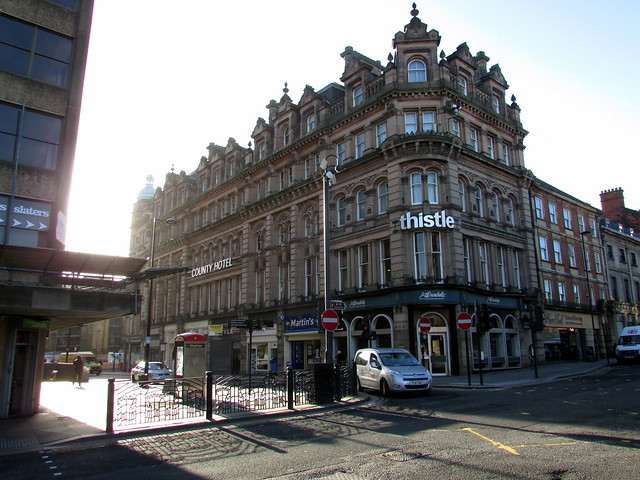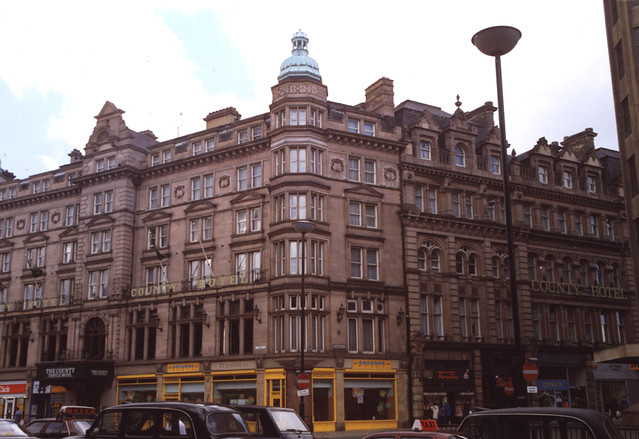Topics > Tyne and Wear > North Tyneside > Cullercoats > Cullercoats, Historical Account, 1890
Cullercoats, Historical Account, 1890
Extract from: Kelly's Directory of Durham, 1890
CULLERCOATS is a watering-place and fishing village, standing on an elevation overlooking the German Ocean, also a township and parish, forming part of the municipal and parliamentary borough of Tynemouth, with a station on the North Eastern railway, 2 ½ miles north from North Shields and 1 from Tynemouth. The original parish of Cullercoats and St. George’s district are in the Tyneside division of the county, east division of Castle ward, Castle West petty sessional division, Tynemouth civil parish and union, North Shields county court district, rural deanery of Tynemouth, archdeaconry of Northumberland and diocese of Newcastle. The road along the sea coast connecting Cullercoats with Tynemouth, constructed at the sole cost of the Duke of Northumberland K.G. forms a magnificent promenade, and is a great attraction to visitors: the sands are most extensive, and there is a good supply of bathing machines and pleasure boats. There are hot and cold salt water baths on the Harbour Beach. A substantial house has been erected for the use of the Life Brigade in stormy weather, the expense being defrayed partly by contributions from the Board of Trade and partly by private subscriptions: the Life Brigade, whose duty it is to work the rocket apparatus, numbers 110 efficient members, who are drilled in the last week of each quarter at the point opposite Beverley terrace. The lifeboat belongs to the National Lifeboat Institution. St. George’s is an ecclesiastical parish, formed April 23, 1880, out of Tynemouth Priory and Cullercoats Tynemouth new parishes, and consists of Cullercoats township and the modern portion of Tynemouth, viz.: Percy gardens, Percy park and the intervening streets. The church of St. George, consecrated December 16, 1884, was erected from designs by Mr. J. L. Pearson B.A. at a cost of between £20,000 and £30,000, by the present Duke of Northumberland, as a memorial to his father, George Algernon, 5th duke: it is a building of local stone in the Early English style, consisting of apsidal chancel of five bays, clerestoried nave, also of five bays, aisles, western narthex, treated as a baptistery, and entered from porches on the north and south sides, and a tower, south of the western bay of the chancel, 90 feet in height, with a broach spire, the whole rising to about 180 feet, and containing 4 bells: the corresponding position on the north side is occupied by a transept, with a large vestry west of it: the nave, aisles and some other parts of the church are groined with plain quadripartite groining, and have a timber roof over of steep pitch: the woodwork throughout is of English oak, the choir stalls and screens being elaborately carved: the organ was constructed at a cost of £1,140: there are sittings for 800 persons. The register dates from the year 1880. The living is a vicarage, gross yearly value £300, with residence, in the gift of the Duke of Northumberland K.G. and held since 1890 by the Rev. Charles Frederick Russell Th.A. of King’s College, London. There is a Primitive Methodist chapel and a Parochial hall, erected in 1886. The Duke of Northumberland K.G., P.C. is lord of the manor. The area of the township is 15 acres; rateable value, £3,743; the population, which is rapidly increasing, was in 1881, 1,365, in 1891, 1,620 and of the ecclesiastical parish, 3,383.
Board School, John street (mixed & infants), under Tynemouth school board, built in 1886, for 260 boys, 180 girls & 120 infants; average attendance, 179 boys, 140 girls & 90 infants.
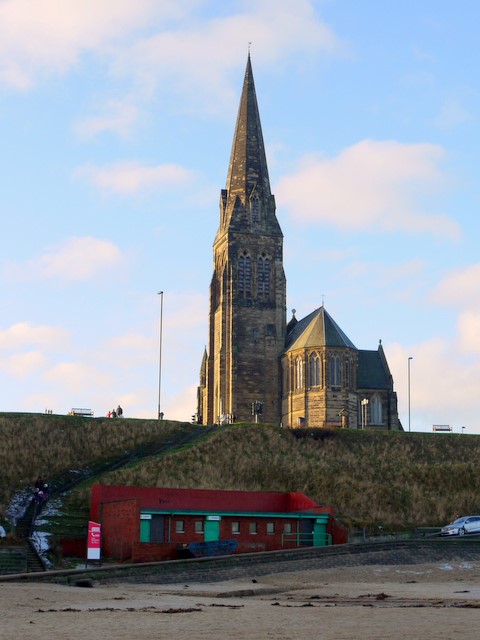
Co-Curate Page
Church of St George
- Overview About the Church Map Street View The Parish Church in Cullercoats was built between 1882 and 1884 by the Duke of Northumberland in memory of his father George Percy, …
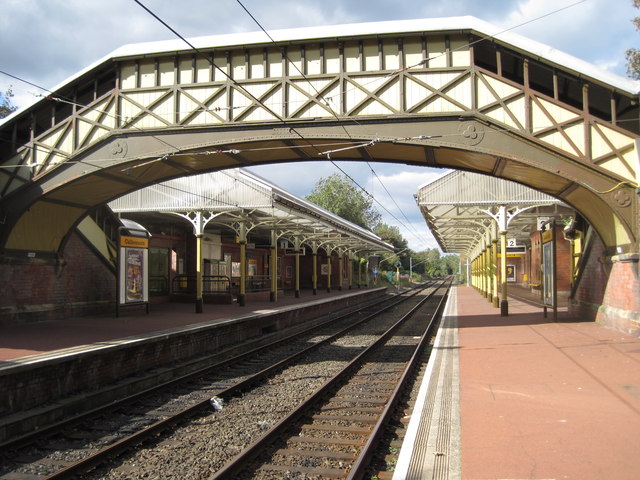
Co-Curate Page
Cullercoats Metro Station
- Overview About Map Street View The Metro station at Cullercoats was originally a railway station, which opened on the 7th July 1882. The station was built by the North Eastern …


Co-Curate Page
Church of St George
- Overview About the Church Map Street View The Parish Church in Cullercoats was built between 1882 and 1884 by the Duke of Northumberland in memory of his father George Percy, …

